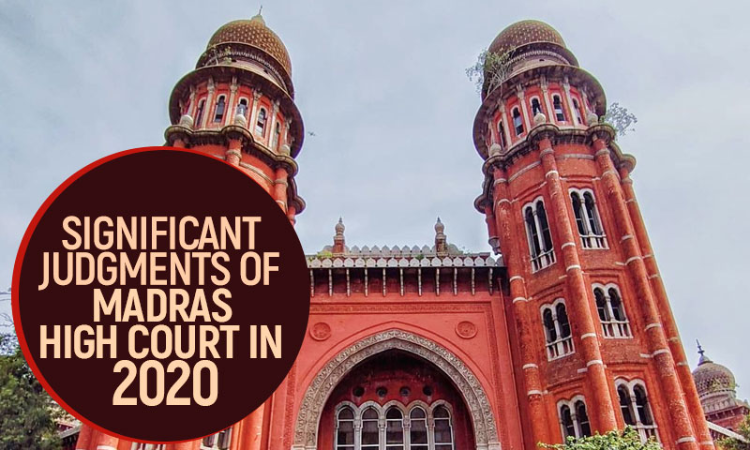- Home
- /
- Top Stories
- /
- Significant Judgments Of Madras...
Significant Judgments Of Madras High Court In 2020
Akshita Saxena
7 Jan 2021 2:47 PM IST
Constitutional Rights 1. "Article 21 Includes Right To Have A Decent Burial": Madras HC Takes Cognizance On Mob Attack Against Burial Of Doctor Died Of COVID-19 In the backdrop of disruption during the burial of a doctor who succumbed to a heart attack after acquiring COVID infection, the High Court expressed concern over the incident and emphasized that the Right to burial...
Next Story



